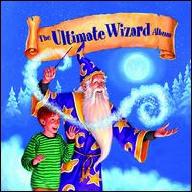He founded L'Orchestre de la Suisse Romande in Geneva in 1918 and remained its chief conductor until he retired in 1966. Although he undertook guest conducting assignments frequently, his loyalty to the orchestra his founded was notable, and he spent by far the majority of his working time with it. His reputation as a conductor was primarily in music of the Classical Era and in tonal twentieth-century music, particularly of French and Swiss composers. He was also a notable interpreter of Russian music of the Rimsky-Korsakov school, but not so outstanding in the rest of the Romantic repertoire. Among the composers he especially championed were Debussy, Ravel, Falla, Roussel, Honegger, Frank Martin, Bartók, and Britten. He was noted for his exceptionally clear orchestral timbres and his accuracy. He was especially noted for recordings in the early stereo LP era, for the English Decca label ("London" in North America) under their ffss logo; these recordings were notable for their clean, wide, and brilliant sound. Ansermet died in Geneva on February 20, 1969. ~ Joseph Stevenson, Rovi
Ernest Ansermet
from Vevey, Switzerland
November 11, 1883 - February 20, 1969 (age 85)
Biography
Ernest Ansermet was born in Vevey, Switzerland, on November 11, 1883. His father was a mathematician and schoolteacher, and his mother taught him music. He studied mathematics at Lausanne University, graduating in 1903. He became a schoolteacher, and then a professor of mathematics in Lausanne (1905-1906). During this time he also studied music with Ernest Bloch, his composition teacher. Deciding to become a musician, he watched conductors closely. He studied conducting with Mottl in Munich and Nikisch in Berlin, and made his concert conducting debuts in Lausanne and Montreux in 1910. He credited his observation of Francisco de Lacerda as the basis of his conducting technique. In 1911 he succeeded de Lacerda as conductor of the Kursaal concerts in Montreux., in 1915 becoming the conductor of the Geneva Symphony Orchestra. The composer Igor Stravinsky frequently stayed in Switzerland before the war and especially the war years. Ansermet became friends with Stravinsky, and also with Debussy and Ravel. The great ballet impresario Serge Diaghilev hired Ansermet as the principal conductor of his Ballets Russes company. During the war Diaghilev took his company to America. Leading their orchestra, Ansermet made his North American debut in New York in 1916 and appeared in South America for the first time in 1917. On this tour in the USA he made his first recordings. On September 28, 1918, he conducted the premiere of Stravinsky's dance-theater piece L'Histoire du Soldat in Lausanne. Through the 1920s he conducted several important premieres for the Ballets Russes, including Falla's The Three-Cornered Hat, Prokofiev's , and Stravinsky's Pulcinella. He became a favorite conductor of Stravinsky's.
Top Tracks
Albums
Videos
Close












